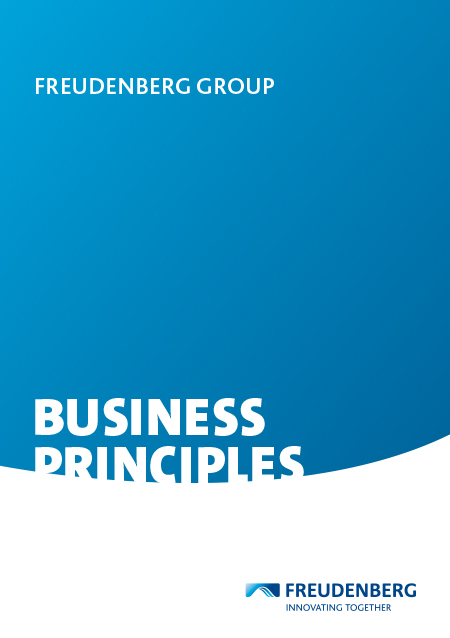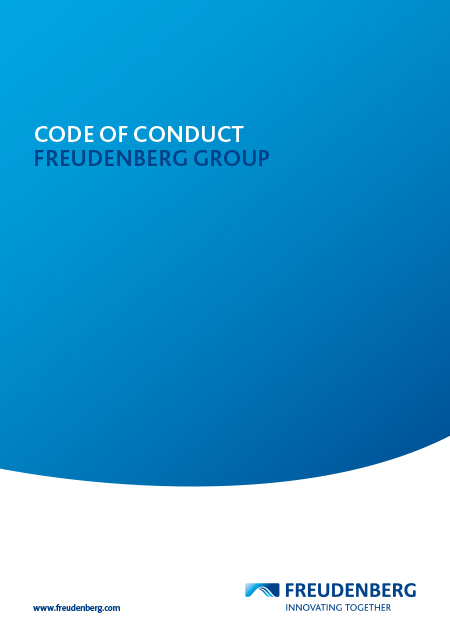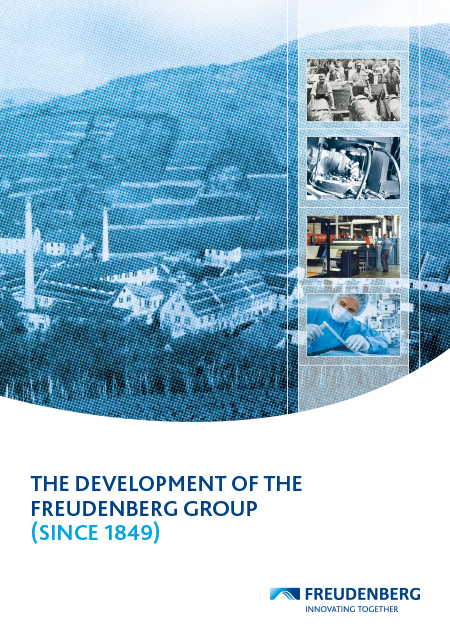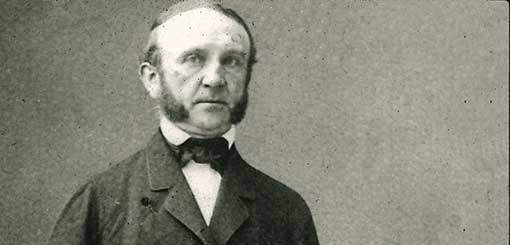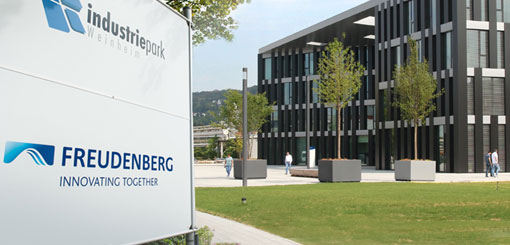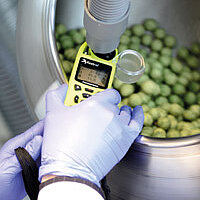Why do we need
company values?
The Guiding Principles only work together, and these interconnections help build a strong company culture
Many employees inherently recognize the significance of Freudenberg's values and founding principles. But what makes them so essential? And how were they established?
The Freudenberg Group’s Guiding Principles today make up the core of this system of values. But long before they were written down in 1999, they were part of the company culture and actively embraced. There have been many examples of this over the course of the company’s history. But it is important to understand that the Guiding Principles only form the foundation of Freudenberg’s company culture in combination with one another. They do not stand alone – they only work together as a whole. When acting in concert, they ultimately help to form Freudenberg’s company culture.
These values can be traced back to founder Carl Johann Freudenberg. They emerged from the culture of trust that he created and modeled, and the business principles that he wrote down in 1887. What emerged was a values-based company culture underpinned by six Guiding Principles: people, leadership, a long-term orientation, innovation, a customer focus, and responsibility.
The historic development of our values
- 1870s Carl Johann Freudenberg’s principle of trust
- 1887 Business Principles of Carl Johann Freudenberg
- 1971 First non-family member on the Board of Management: First considerations regarding the formulation of company principles. The initial question: how to make the traditional family values obligatory for executives from outside the company? The results up until the 1990s: various handbooks, guidelines, and explanations. But the Board did not adopt the principles that were to be applied.
- 1994 Business Principles: They were used to define the scope of action of future Board Members as the number of family members on the Board of Management was in decline.
- 1999 Guiding Principles: They established the foundation of values for every employee in the Freudenberg Group as well as behavior toward employees, business partners, third parties, and other interest groups.
- 2011 Values and principles: Against the background of a steadily growing Freudenberg Group and increasing regional and cultural diversity in the business environment, explanations were added to the company’s Guiding Principles to make them easier to understand and provide an interpretation that could be applied internationally.
- 2015 Code of Conduct: The uniform, group-wide internal Code of Conduct is based on the Guiding Principles and Business Principles and provides employees with guidance on issues ranging from occupational safety and environmental protection to rules of cooperation and clear guidelines on corruption and export controls.
- 2024 New edition of the Guiding Principles: As in 2011, the Guiding Principles is reviewed for relevance and slightly revised in language to ensure that they continue to provide guidance in day-to-day work and serve as a compass in business dealings.
Values
As a family-owned company, we are committed to the well-being and personal development of our employees. We reject all forms of discrimination and harassment and treat each other with understanding and respect. We foster a multicultural environment where employees work together in global teams to enrich our culture and contribute to our collective success. We believe in the value of lasting relationships with customers, suppliers and industry partners.
There are examples from our company history that reveal a concern for the well-being of our employees at an early stage. By 1874, Carl Johann Freudenberg had already established a company health benefit fund for employees. It still exists today.
Over the decades, many supporting agencies have followed to help employees in emergencies and other everyday situations. As part of the global e2 initiative launched in 2015, people outside the company are given access to education and employment.
Another element is the systematic training and nurturing of talent at Freudenberg, which has been steadily expanded since the 1930s.
The systematic education of employees, including continuing education, takes the discussion to the next Guiding Principle: leadership.
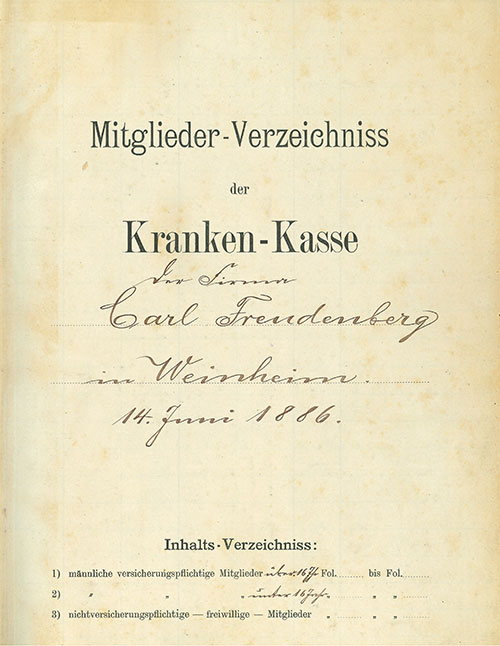
Excerpt from the list of members of the Freudenberg company health insurance fund, 1886
Entrepreneurship is our heritage. It is the foundation of our success. We are continuing this tradition by delegating responsibility and promoting freedom of action and personal accountability. We believe in an inclusive and respectful leadership style. It relies on personal example, humility, trust in people and the promotion of a team spirit. We want to develop our future leaders within the Freudenberg Group.
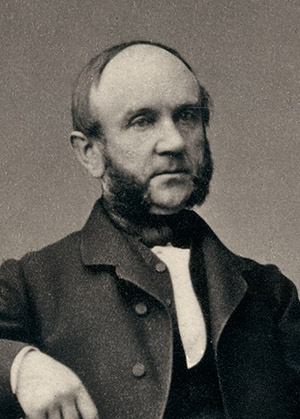
Carl Johann Freudenberg around 1862
Carl Johann Freudenberg’s position on trust was clear: “It is better to trust a hundred times at the risk of being taken in, than to mistrust unjustly even once.”
This mindset created a culture of trust in the company early on, laying the foundation for the delegation of responsibility and true entrepreneurship. That’s why special attention has always been paid to the development of managers. From the very beginning, the idea was to prepare the next generation for the management of the company with appropriate training in Germany and abroad.
Those preparations for generational change highlight the next Guiding Principle: a long-term orientation.
Since Freudenberg was founded in 1849, we have constantly adapted to changing conditions, resulting in a successful and diversified company. Being a family-owned company gives us stability. We firmly believe that our long-term business orientation is a major strength which benefits our shareholders, customers, employees and partners. Financial prudence, sound risk management, innovation, sustainability, long-term partnerships and profitability will continue to set the direction and pace of our strategic development.
To ensure long-term success, the company turned to international business from the outset. The leather market was already international at the time of the company’s founding. That is why business relationships were established in the United States, the United Kingdom, France, and Turkey in 1849.
Numerous other countries around the world soon followed, including Brazil (1853), Mexico (1854), Russia (1855), India (1867) and Australia (1868).
During the 1920s, the first companies outside of Germany were established to continue the development of international markets. Starting in the 1930s, they were followed by international partnerships, first in Europe (Italy) and in the Americas and Asia since the 1950s. Some of them still exist today.
These partnerships have provided the impetus for product development – which leads to the next Guiding Principle: innovation.
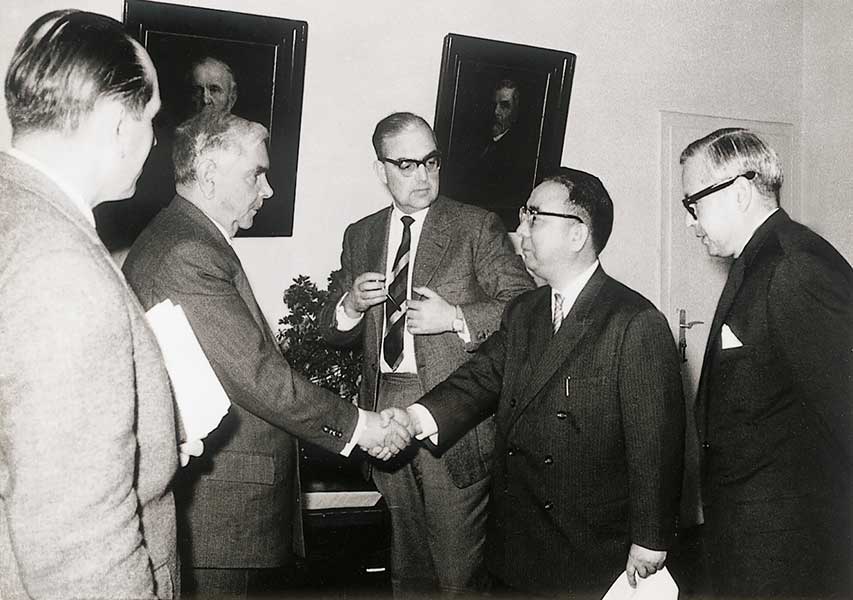
Contract signed between Freudenberg and NOK in 1960. From left to right: Dr. Helmut Fabricius, Richard Freudenberg, Dr. Hans Erich Freudenberg, Shogo Tsuru and Dr. Kurt Brasch.
Groundbreaking technological innovation of our processes, products, materials and services provides solutions to our customers’ challenges. Continuous innovation and a willingness to change are our tradition and are essential to our long-term success. We are leaders in continuous improvement and operational excellence. Our culture encourages and rewards the creativity and initiative of all our employees.
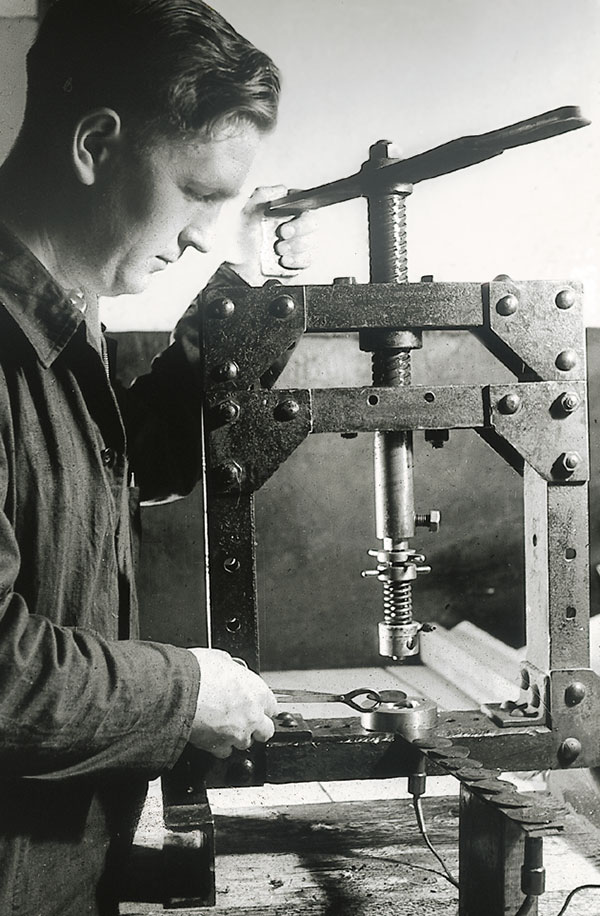
First seals produced on a spindle press in 1929
Innovation has been a hallmark of the company over its entire history. The trend had already begun in 1850 with the production of an innovative patent leather. With the introduction of chrome tanning between 1900 and 1904, innovation led to diversification.
The first seals (1929) were followed by the Simmerring (1932) and nonwovens (starting in 1936). The latter began conquering the clothing and household product markets in 1948, and in technical applications and filters in 1957. The trajectory of Freudenberg innovation continued all the way to the state-of-the-art components for fuel cell systems manufactured today.
The focus has always been on meeting the needs of the customer with high-quality products – which takes the story to the next Guiding Principle: a customer focus.
Our commitment is to anticipate, understand and meet our customers’ needs and expectations. As a conscientious supplier with a passion for detail, we give our customers the support they need to be successful. We provide superior value through dedication to quality, service, reliability and our global presence.
The company has also lived and breathed the commitment to a customer focus from the outset.
It started out developing this attention to customers’ needs at international industrial exhibitions, like the Great Exhibition in London in 1851.
Sales employees later went abroad, and the systematic construction of production facilities around the world began in 1950. The goal has always been to establish a presence close to customers in different regions. In the process, the company has increasingly become a problem-solver, providing its customers with made-to-order solutions for applications and solving their problems.
Today the focus is increasingly on sustainable solutions – in keeping with the next Guiding Principle: responsibility
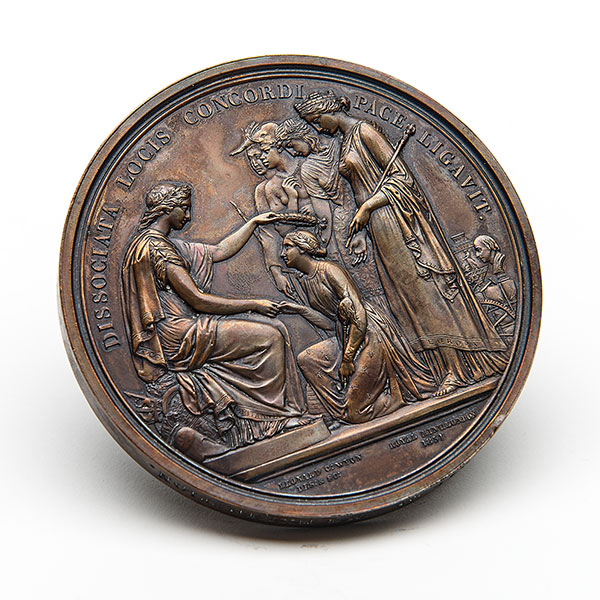
The prize medal awarded to Freudenberg at the First Great Exhibition in London, 1851
We are committed to the highest standards of personal behavior. Fairness and integrity guide our actions within the company and in the communities where we operate. These values govern our behavior towards customers, suppliers and other business partners. We are committed to sustainability and responsible behavior in all the countries and communities where we operate. We are dedicated to workplace and product safety.
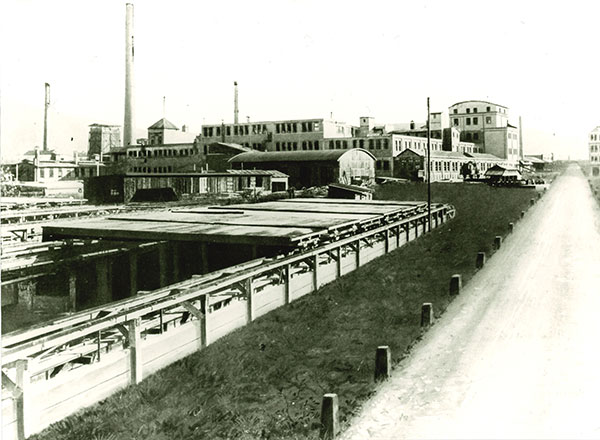
Wastewater treatment plant in Weinheim, 1920s
The company is one of the environmental pioneers in water treatment. Even during the 19th century, industrial wastewater generated during leather production at Freudenberg was cleaned in treatment plants.
In the 1970s, the company began building a systematic environmental management system now in use at every Freudenberg facility worldwide. This created the foundation for today’s sustainability strategy.
Based on the strategy, it is viewing sustainability in two dimensions: For one thing, its products and processes should have the smallest possible environmental “footprint.” For another, customers should be offered products and solutions that allow them to design products that use resources more economically, reducing Freudenberg’s “handprint.”
The objective: to use resources sparingly to preserve them for future generations. This goes back to the first Guiding Principle: people.
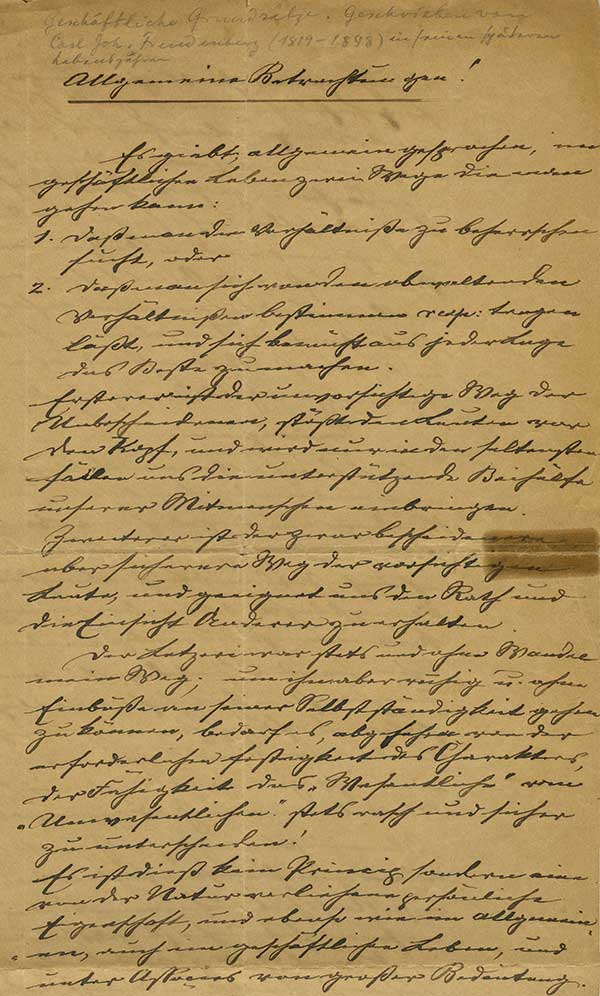
The business principles that Carl Johann Freudenberg wrote down in 1887
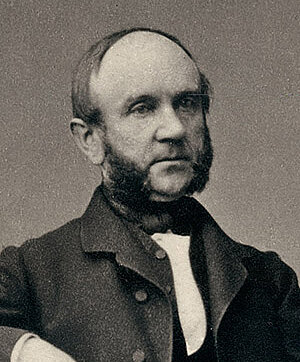
The founder Carl Johann Freudenberg

